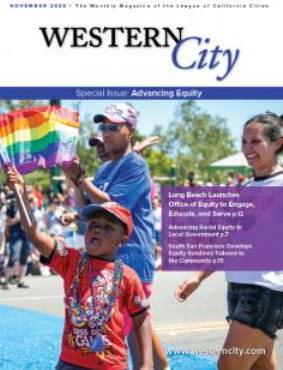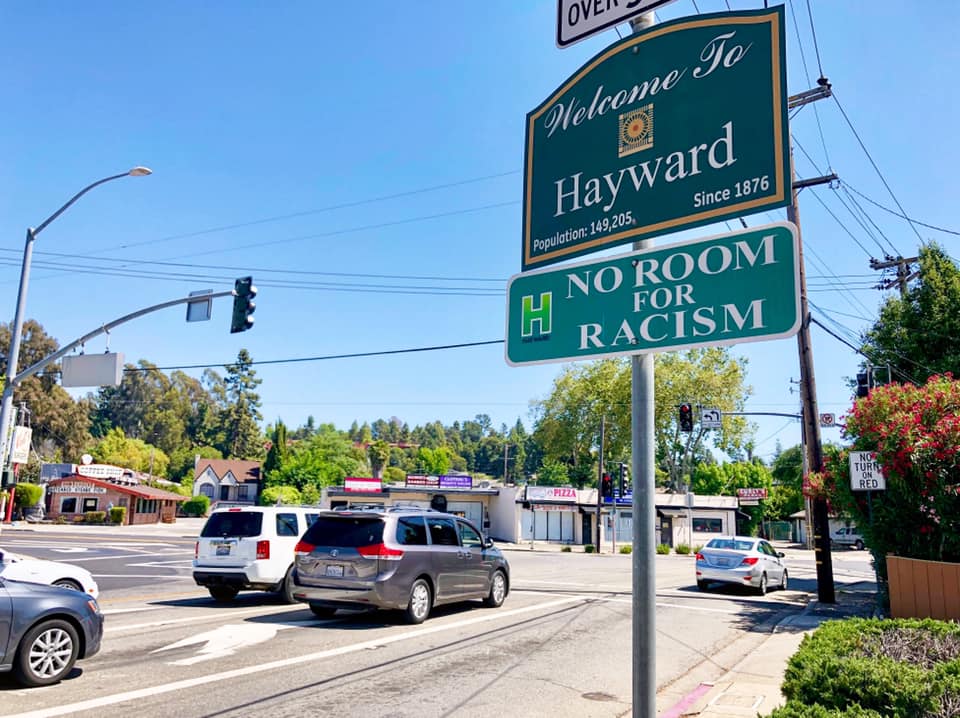
Advancing Equity
The League of California Cities doesn't just advocate for the common interest of cities. It also helps city officials lead on challenging issues their communities face by providing education and resources that focus on promising strategies and new solutions. In June 2020, the Cal Cities Board of Directors issued a statement committing to the creation of an equitable and just future for all Californians. Cal Cities is dedicated to supporting its members by connecting them to resources and educational opportunities that strengthen their knowledge and capacity to eliminate racial disparities, heal racial divisions, and build more equitable communities. Below, is a list of foundational resources, which will grow as we deepen our knowledge and breadth in this space.
Advancing Equity Community
We are excited to announce the Cal Cities Advancing Equity Community where members can connect with one another to share information and resources. The new tool enables city officials to post information, give feedback, share resources, and interact with other city leaders on diversity, equity, and inclusion within cities. This community is open to all Cal Cities members. If you have any questions or need assistance, please contact Meghan McKelvey. Sign up now >
Equity Roadmap

Resources for Cities
Free to watch
- Advancing Racial Equity: An Introduction - Cal Cities and the National League of Cities REAL Department set the stage for the work necessary to expand city leaders' knowledge and capacity to eliminate racial disparities, heal racial divisions, and build more equitable communities. Cal Cities webinar originally offered Aug. 27, 2020.
- Advancing Racial Equity: A Discussion - Cities across the nation are grappling with frustration, outrage, and grief stemming from the effects of systemic racism. Join leadership from the National League of Cities REAL Department and three California city leaders for a discussion on how they are building more equitable and just cities. Keynote panel discussion originally offered at the League of California Cities Annual Conference and Expo on Oct. 8, 2020.
Learn from other cities in Western City's magazine


The November 2020, December 2021, and December 2022 issues of Western City magazine
highlight efforts to address systemic inequities in city institutions and policies and replace them with systems that are inclusive and fair.
- NLC REAL: The National League of Cities (NLC) Race, Equity, and Leadership (REAL) program was established in the wake of the 2014 unrest in Ferguson, Missouri, to strengthen the capacity to build more equitable communities. The REAL department offers tools and resources that help local elected leaders build safe places where people from all racial, ethnic, and cultural backgrounds thrive socially, economically, academically, and physically. Please refer to the following reading list:
- Municipal Action Guide: Advancing Racial Equity in Your City compiles six immediate steps for improving outcomes for all residents.
- Municipal Action Guide: Responding to Racial Tension in Your City provides important contextual and tactical information to support your municipality’s efforts to respond effectively.
- Repository of City Racial Equity Policies and Decision includes examples of concrete policy and budgetary changes local elected officials have made to prioritize racial equity in their cities and towns.
- Racial Equity Resolution provides a template and talking points that explain why pursuing equity is good for local government.
- The City Leader’s Compass to the My Brother’s Keeper Landscape offers resources for city leaders working to respond to the My Brother’s Keeper Community Challenge. This publication highlights a comprehensive set of steps cities can take to tackle disparities, change systems, and improve outcomes for boys and young men of color.
- GARE: The Government Alliance on Race and Equity (GARE) is a national network of government working to achieve racial equity and advance opportunities for all. GARE supports jurisdictions that are at the forefront of work to achieve racial equity; develops a “pathway for entry” into racial equity work for new jurisdictions; and builds local and regional collaborations that are inclusive and focused on achieving racial equity.
- Race Forward: Race Forward brings systemic analysis and an innovative approach to complex race issues to help people take effective action toward racial equity. The organization conducts original research on pressing racial justice issues ranging from immigration to economic inequality.
- ICMA Race, Equity, and Social Justice: Materials curated by the International City Managers Association (ICMA), along with reports and surveys that describe approaches that have an impact and provide the opportunity to learn from the experiences of others.
- Mayors and Business Leaders Center for Compassionate and Equitable Cities: Resources, including ideas, initiatives, toolkits, and reports, by mayors and for mayors and other city leaders.
Becoming your community’s ally: How the city of Hayward continues to move the equity needle by listening and learning
.png?sfvrsn=ca52a9c9_1) Accountability and education have served as a foundation for the city of Hayward in its efforts to advance equity.
Accountability and education have served as a foundation for the city of Hayward in its efforts to advance equity.
“We have to come at it with a mindset of learning and of not being embarrassed by what we don’t know,” said Hayward City Manager Kelly McAdoo. “We must be willing to say, ‘I didn’t know that, but what can I do as a city leader to make it better?’”

While Hayward, an East Bay city with roughly 162,000 residents, had an anti-discrimination action plan in place since the 1990s, city officials realized five years ago that it was in dire need of updating. Following the presidential election of 2016 and a dramatic rise in hate speech targeted at minorities, protests erupted across the country. Members of systemically marginalized communities mobilized and protested against hate speech, discrimination, and excessive use of force by law enforcement. City officials saw that fear, mistrust, and uncertainty were beginning to plague its community. Located in the heart of the Bay Area and home to a demographically diverse population, tensions were high.

The commitment was guided by a set of shared values, including civic engagement, compassion, connectedness, and opportunity, and proposed specific actions over two years that focused primarily on dismantling illegal forms of discrimination, fostering accessibility, and enhancing community and police relations. The city council adopted the plan and began implementing its recommendations as part of an ongoing effort to foster an inclusive and equitable community.
Prioritizing community safety and destigmatizing mental health support

As part of this project, the city implemented an eight-week virtual policy innovation workshop on community safety in February 2021. These workshops provide a space for community members and city staff, including city police and representatives of the criminal justice system, to discuss community safety concerns. Together they collaboratively brainstorm, research, and test policy solutions to improve community safety and build public trust.
“I believe the city is moving in the right direction addressing issues of equity and inclusion head-on,” continued Oquenda. “The city should continue its focused, data-driven work to expand opportunities for more community participation to shape public safety policy that affects us all.”
More information about Hayward's approach to advancing equity, including building consciousness and accountability, is available in the December issue of Western City Magazine.

Leave a comment